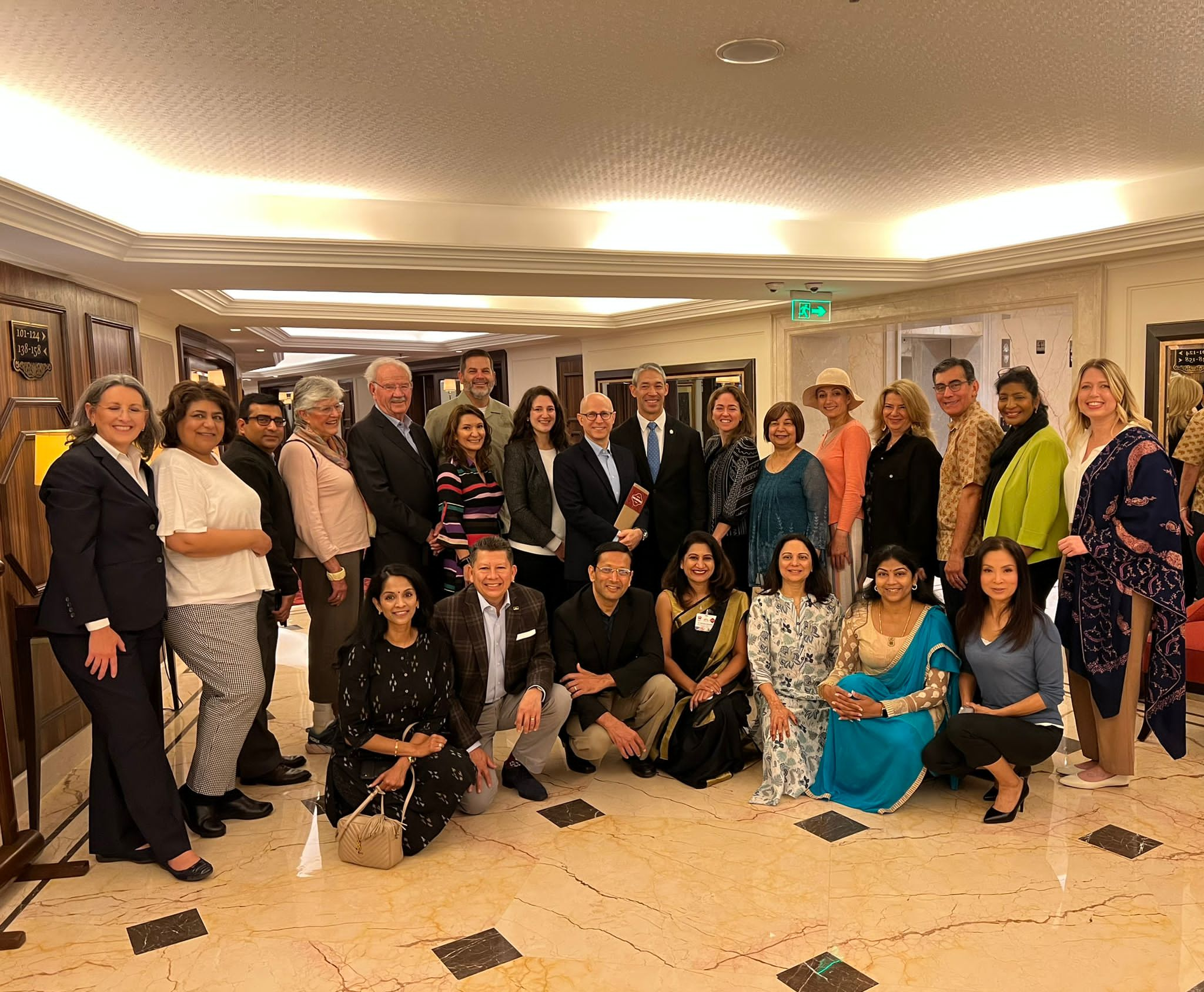Posted on March 20, 2023 by The Graduate School
A team of UTSA faculty and administrators representing the Graduate School, Global Initiatives, the College of Sciences and the Margie and Bill Klesse College of Engineering and Integrated Design traveled to India to forge partnerships with the country’s leading higher education institutions. The UTSA team was part of the India Trade Commission (ITC) delegation led by San Antonio Mayor Ron Nirenberg, San Antonio Chamber of Commerce President Richard Perez, District 6 Councilwoman Melissa Cabello Havrda, District 8 Councilman Manny Pelaez of UTSA’s main campus constituency, Alamo College District Chancellor Michael Flores, former Mayor Phil Hardberger, community business leaders and representatives from Anuja SA.
Provost and Senior Vice President for Academic Affairs, Kimberly Andrews Espy supported the UTSA team, consisting of Ambika Mathur, vice provost for graduate studies and dean of the Graduate School, Lisa Montoya, vice provost for Global Initiatives and senior international officer, Saugata Datta, professor and department chair of Earth and Planetary Sciences, and Dhireesha Kudithipudi, Robert F. McDermott endowed chair in engineering and director of the MATRIX Artificial Intelligence Consortium.
“We are grateful for the opportunity to participate in this cultural delegation with San Antonio’s city leaders to advance UTSA’s efforts to forge new international partnerships for the benefit of our students,” said Espy. “Through our new relationships with prestigious international institutions, UTSA students will have opportunities to gain valuable global insights providing an advantage in their future careers.”
The two-week trip proved productive in advancing UTSA's research and instruction portfolio, culminating in signed memorandums of intent and initiated agreements with six elite institutions, all ranked in the top 100 globally and ranked top 20 in India. These institutions include Vellore Institute of Technology, Indian Institute of Sciences, Management Development Institute (MDI) in Gurgaon, Indian Institute of Technology (IIT) Bombay and Indian Institute of Management (IIM) in Udaipur and IIT-Delhi.
The ITC delegation visited several cities beginning with San Antonio’s sister city, Chennai, where the delegation met with its mayor, elected officials and business and community leaders. Judith Ravin, U.S. consul general of the state department and Consulate staff members hosted the delegation. The remainder of the trip’s itinerary featured excursions to India’s biotechnology hub, Bangalore--known as the “Silicon Valley of India”--and New Delhi, Vellore, Jaipur, Mumbai, Kharagpur and West Bengal.
India passed a new National Education Policy in 2020, which allows for more innovation in the Indian education system, making dual degrees and international collaborations easier to initiate.
The universities with whom we met are so open to collaboration,” Montoya said. “We are excited to work together to create new opportunities for students and faculty.”
The UTSA team secured meetings using their professional networks with faculty and administrators in prestigious internationally-ranked institutions in each city visited. The U.S. Commercial Service and the Embassy of India in Washington D.C. also assisted in opening doors for several important meetings including two federal agencies.
Additionally, the team met with Rama Swami Bansal, chief scientist and head of the Council of Scientific and Industrial Research (CSIR), to engage in new research partnerships with the MATRIX AI Consortium, in AI-related fields. Planning is underway to launch new collaborative activities later this year. To understand the broader educational changes in India and how they impact international partnerships, the UTSA delegates met with Chairman of the University Grants Commission, Mamidala Jagadish Kumar and his team.
“The purposes of the trip were to establish relationships with equivalent or higher-ranking institutions , cultivate faculty research partnerships and student exchanges and establish a recruitment pipeline,” Mathur said.


